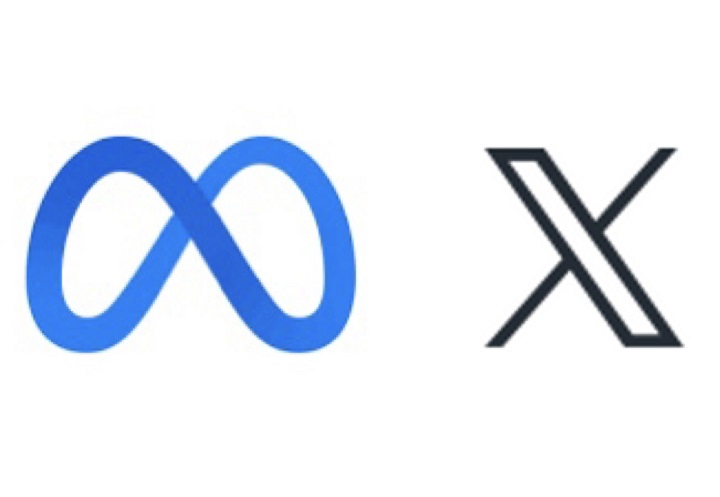In the dynamic world of social media, two giants are currently vying for supremacy: Facebook, the longstanding behemoth, and X (formerly known as Twitter), the platform known for its real-time updates and concise interactions. This article explores the escalating rivalry between Facebook and X, delving into their contrasting approaches to content, user engagement, and the profound impact they have on online discourse.
The Evolution of Facebook
For over a decade, Facebook has maintained its position as the quintessential social networking platform. Founded by Mark Zuckerberg in 2004, it quickly became a global phenomenon, boasting billions of users and a sprawling ecosystem that includes Instagram and WhatsApp. Facebook’s early success was built on the idea of connecting friends and family, sharing personal updates, and photos, and facilitating communication.
Over time, Facebook expanded its services and monetization efforts, introducing features like the News Feed, Groups, and Pages, while also grappling with controversies related to privacy, data breaches, and the spread of misinformation. Despite these challenges, Facebook has managed to retain a vast and dedicated user base, making it a formidable force in the social media landscape.
X’s Ascent to Prominence
On the other hand, X, formerly known as Twitter, presents a distinct alternative to Facebook’s all-encompassing model. Founded in 2006, Twitter gained popularity for its 280-character limit, real-time nature, and the ability to follow public figures, news outlets, and anyone with an opinion to share. The platform became a hub for discussions, news dissemination, and trending topics.
In recent years, X has undergone significant transformations under new leadership and rebranding efforts. The platform now emphasizes its role in fostering healthy conversations, addressing the spread of misinformation, and providing users with more control over their timelines through features like “Topics” and “Spaces,” which allow users to participate in audio conversations.
Content and Engagement: Facebook vs. X
The content and engagement dynamics on Facebook and X are notably different. Facebook’s News Feed relies heavily on algorithms to curate content for users, often leading to echo chambers and filter bubbles, where users are exposed to content that aligns with their existing beliefs and preferences. While this approach can enhance user engagement and retention, it has also faced criticism for contributing to the spread of misinformation and divisive content.

In contrast, X maintains a more open and unfiltered approach, where users curate their timelines by following accounts of interest. This design allows for a wider range of perspectives and opinions, promoting real-time discussions and diverse viewpoints. However, it also makes X susceptible to issues like trolling, harassment, and the rapid spread of misinformation.
The Impact on Online Discourse
The contrasting approaches of Facebook and X have significant implications for online discourse. Facebook’s algorithm-driven content delivery can amplify divisive content and polarize users, as it prioritizes engagement metrics. This has been a point of concern, especially when it comes to political and social issues, where echo chambers can reinforce existing biases.
Conversely, X’s real-time and follower-centric model fosters immediate responses and public conversations. While this can lead to constructive dialogues and rapid dissemination of information, it also poses challenges in terms of moderation and the potential for harassment and online toxicity.
The Future of Online Discourse: A Complex Competition
As Facebook and X continue to compete for user attention and influence, they play a critical role in shaping the future of online discourse. Users are presented with a choice: engage with Facebook’s curated content or embrace X’s real-time conversations. This competition also places pressure on both platforms to address issues such as content moderation, privacy, and the spread of misinformation.
Ultimately, the outcome of this ongoing battle between Facebook and X will shape the way we communicate, access information, and engage with digital communities. Users have the power to influence this outcome by choosing the platform that aligns with their values and objectives, emphasizing the importance of user agency and platform accountability in the evolving landscape of social media. As the competition intensifies, the future of online discourse hangs in the balance, waiting to be shaped by the choices users make in this dynamic digital arena.
Support InfoStride News' Credible Journalism: Only credible journalism can guarantee a fair, accountable and transparent society, including democracy and government. It involves a lot of efforts and money. We need your support. Click here to Donate
